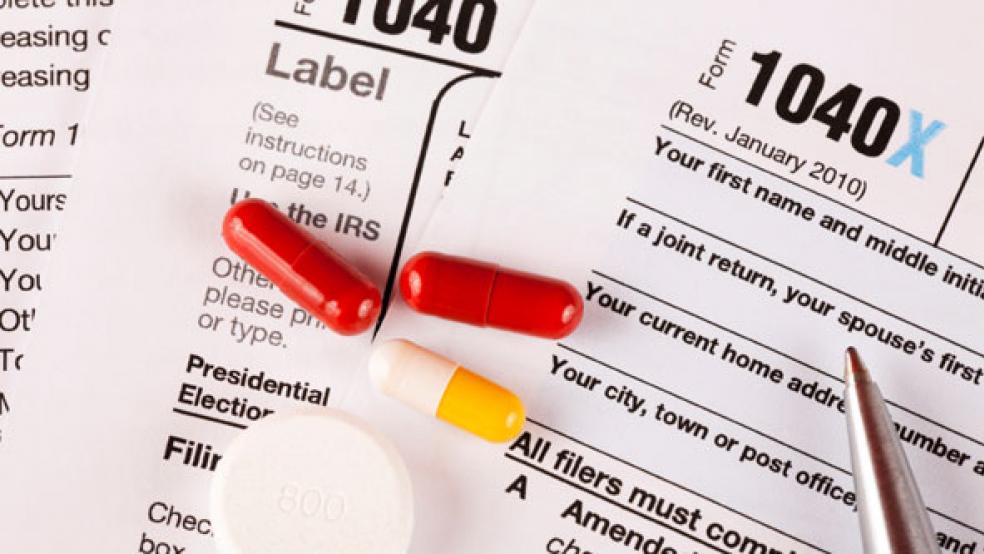Shrugging off Republican concerns that the health insurance mandate will lead to massive disclosure of private information, Internal Revenue Service commissioner Douglas Shulman told a meeting of the House Oversight and Government Committee Thursday that individuals will simply be required to check a box on their tax reform.
In fact, the checkmark will be key to the IRS collecting penalties from people who fail to obtain coverage, Shulman said. The IRS will deduct the $695 penalty starting in 2014 from taxpayers’ refunds.
“We feel very comfortable that the part of the Affordable Care Act, which we’re responsible for, will be implemented well and on time,” Shulman said. “People have my personal commitment and the agency’s broad commitment that we will do it in a way that minimizes burden on businesses and individuals and respects taxpayers’ rights.”
Congressional Republicans believe Obamacare in its entirety is a violation of individual rights. House Speaker John Boehner said last month, “The American people do not want to go down this path. The do not want the government telling them what kind of insurance policy they to buy, and how much they have to pay for it, ‘and if you don’t like it we’re going to tax you.’”
The IRS was charged with implementing 40 changes to the tax code under the ACA, better known as Obamacare, which includes imposing penalties on those who do not obtain health care coverage. The only exceptions are those falling below the poverty threshold. The IRS will also provide tax credits to some individuals and small businesses to help offset expensive health care costs.
Shulman said if someone doesn’t pay the tax, the tax will come out of their federal tax return.

Questions over whether the IRS would violate an individual’s privacy by obtaining health care information were quickly dismissed by Shulman, who said the issue was “overstated.”
Rep. Danny Davis, D-Ill, asked what information will be obtained by the IRS to enforce the law.
“They claim that the IRS is going to have access to individuals’ private health information,” Davis said. “Is that a need in order to enforce provisions of the act?”
“What we will know is, if you have health insurance, and if so for how many months and what was the name of the insurance company,” Shulman replied. “It’s been way overstated, our role in health care. We are basically going to facilitate the financial transactions that make this law work we’re not going to have access to private, individual health care information.”
Several committee members questioned whether the agency has the resources to execute such a large undertaking, a concern shared by the taxpayer advocate at the IRS, Nina Olson. She said she was “concerned taxpayers will eventually be harmed” due to inadequate funding of the IRS.
“The combination of the expanding IRS workload and its shrinking resources is the most serious problem facing the U.S. taxpayers,” Olson said. “Because of this imbalance between responsibilities and resources, the IRS is now unable to answer roughly one-third of the tens of millions of calls it receives from taxpayers each year, or to process timely about half the correspondence it receives from taxpayers in response to tax adjustment notices.”
The commissioner also dismissed Olson’s claims, saying his agency is “well on track.”





